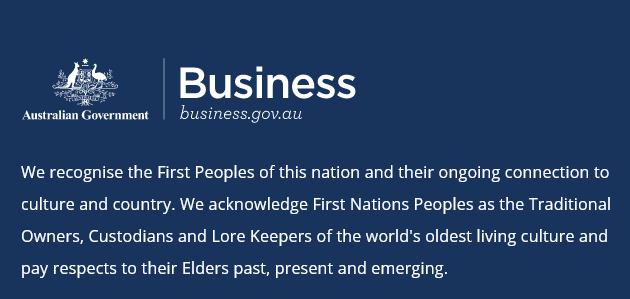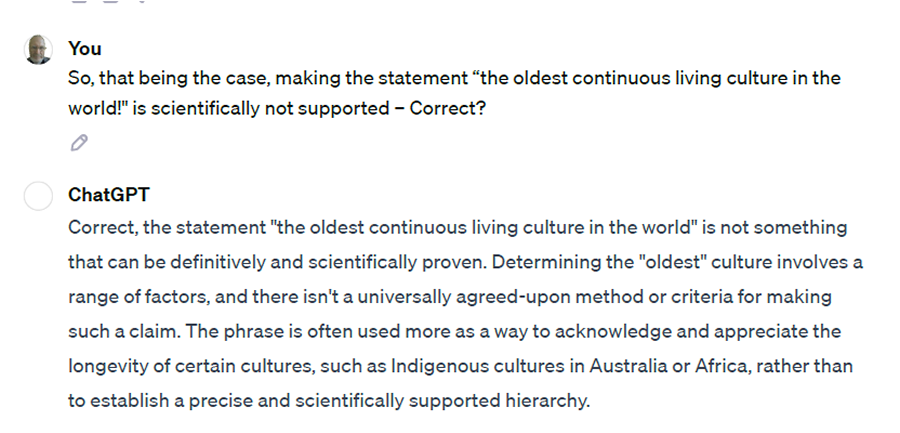PREAMBLE
Social media magnifies bias, advances prejudice and promotes naïveté.
Given that now, the vast majority of society is involved in social media and for a majority, participation in this medium that provides the major input of information into their daily lives, it comes as no mystery that ‘ignorance’ is now a growth industry within our society.
Given that information on social media is exclusively provided from a source of self-interest, by individuals who, in the majority, produce material that is unresearched, lacking in critical analysis and unethically presented, the only outcome can be, a naïve and polarised community.
Corporate media is obliged, in order to continue its financial viability, to embrace the current values adopted by its audience.
Government media, thanks to the transition of politics over the last 60 years from a system in which individuals sought to influence society by being part of the government system to now being a system where individuals, seek the power of celebrity as the portal to legislative control, is now likewise required to embrace the current values of society, irrespective of how destructive the long-term consequences of holding those values may be.

The is displayed on Australian government websites. A government that asks us to trust them that they would not tell us anything that is known to be at the best very speculative and at the worst known to be blatantly untrue.
But here we have it for all the world to see
The Australian government tells us that they "recognise the first Peoples of this nation".
One has to assume that the term "this nation" means the nation of "Australia". The name Australia first appeared in legislation on 9th July 1900 in the Imperial Commonwealth of Australia Constitution Act. when 5 colonies of the British nation, with the approval of the British nation, formed the nation of "Australia".
So, the "First Peoples of Australia" where those present in this land mass on 9th July 1900. Thats about 3.7 Million People of which at least *10,113 were of Aborignal desent (*See Census 1911- p905)
Of course these are not the people that the Australian government are referring to. The people that the Australian government want to refer to but are so clumsy with the truth that they need to spin a line that is clearly mythological, is the humans in occupation of the continent prior to colonisation by the British and its subsequent formation into the nation of Australia and that this group of humans represents "the oldest living culture" what ever nonsence that means.
 It is the Australian government's approach in being less than truthful in reminding all Australians that comprise Australian nation that some of the members of this nation are descendants from humans that were living in the geographical location of this nation prior to the colonisation by the British which finally resulted in the creation of the Australian nation.
It is the Australian government's approach in being less than truthful in reminding all Australians that comprise Australian nation that some of the members of this nation are descendants from humans that were living in the geographical location of this nation prior to the colonisation by the British which finally resulted in the creation of the Australian nation.
We could perhaps forgive the Australian government for being clumsy with the truth in order to carry favour with the wave of popularism that is currently sweeping our nation by those with vested interests that see the opportunity to exploit the naïveté of new generations by constructing a parable about history.
The government then goes on to tell us that this subset of our nation, those they would label "First Peoples", are "Custodians.... of the worlds oldest living culture..." .
So what defines a "living culture'
'Living' is defines as "The process of desplaying the characteristics of life"; and here is a sample of the attempts to define the term 'Culture'
The arts, beliefs, customs, institutions, and other products of human work and thought considered as a unit, especially with regard to a particular time or social group.
These arts, beliefs, and other products considered with respect to a particular subject or mode of expression.
The set of predominating attitudes and behavior that characterize a group or organization.The customary beliefs, social forms, and material traits of a racial, religious, or social group. also:
The characteristic features of everyday existence (such as diversions or a way of life) shared by people in a place or time Example: 'popular' culture Southern 'culture'The set of shared attitudes, values, goals, and practices that characterizes an institution or organization
Exanple : a corporate culture focused on the bottom line;The set of values, conventions, or social practices associated with a particular field, activity, or societal characteristic.
Examples:
'studying the effect of computers on print culture'....
'Changing the culture of materialism will take time' ....
The integrated pattern of human knowledge, belief, and behavior that depends upon the capacity for learning and transmitting knowledge to succeeding generationsThe enlightenment and excellence of taste acquired by intellectual and aesthetic training and acquaintance with a taste in fine arts, humanities, and broad aspects of science as distinguished from vocational and technical skills. - a person of culture
The act or process of cultivating living material (such as bacteria or viruses) in prepared nutrient media and the product of such cultivation
The act of developing the intellectual and moral faculties especially by education
Perhaps Wikipedia provides a more useful description
"Culture" is an umbrella term which encompasses the social behavior, institutions, and norms found in human societies, as well as the knowledge, beliefs, arts, laws, customs, capabilities, and habits of the individuals in these groups.
Culture is often originated from or attributed to a specific region or location.Humans acquire culture through the learning processes of enculturation and socialization, which is demonstrated by the diversity of cultures across human societies.
So culture is not a fossil it is a process component of living and just like the physical components of living is subject to the laws of evolution.
Every human alive today is testimony to their ancestors success within the process of evolution and the expression of that lived form is what we define as 'culture'. The no such thing as the "oldest living culture" unless you mean 'life on earth'.
To make the claim of the 'oldest' living culture" is to display at best a gross ignorance of the processes of evolution as revealed by science and at worst, a distortion of truth for ignominious purposes.
And before we leave definitions "Lore" is:
- a body of knowledge or tradition that is passed down among members of a culture, usually orally
and the use of 'lore' in "folklore:"
- Usully is the way for spreading mythical figures, such as Santa Claus, Easter Bunny, Tooth Fairy, Garden of Eden and the Dream Time. [Ref]
The community of 2022 looks through a kaleidoscope of these new social mediums and thier own limited experiences, at the realities of human evolution in the 18th century to makes a judgement upon that history, based on a current philosophy and not the reality in existence at that time.
Many a young man forfeited his life early, based upon a decision at that time which was reasonably defensible as being both courageous and exceedingly generous - worthy of the highest regard. Yet several generations on, judged to have been an exceedingly foolish and naïve individual deserving of our rejection of this behaviour and pity for thier stupidity.
Given these realities, it should come as no surprise to anyone that the general understanding of our current society about the history of colonisation of this continent by the Europeans has been so manipulated by these forces that this understanding is now of a mythology.
1770
 "International law" in 1770 provided the lawful mechanism by which a country may acquire interest in land outside their existing sovereign borders by undertaking a protocol prescribed by that law.
"International law" in 1770 provided the lawful mechanism by which a country may acquire interest in land outside their existing sovereign borders by undertaking a protocol prescribed by that law.
Justice Brennan of the High Court of Australia in the 1992 judgement on Mabo provided the details of what, in 1770 the International law prescribed.
The Colonisation of the eastern half the great southern continent by the Sovereign of Great Britain and Ireland was executed in accordance with that law.
Further, the application of that law, in the Colonisation process, was executed in accordance with the moral values of a society operating under a Christian religion theology.
A current advertisement published by the Australian Broadcasting Corporation on 26 January 2022 tells me, via the medium of television and what appears as an indigenous woman, that this Colonisation act was in fact "wrong".
This advertisement was also published on many commercial information networks.
And given that:
It was not ‘wrong’ under international law and that it was not ‘wrong’ under the moral values of the society that perpetrated the action, one has to assume that this woman was alluding to it being ‘wrong’ maybe under her current moral values or even those of our current society and which she wishes to apply to participants in past histories.
And given that:
This was a view promoted by the ABC and these commercial networks, so this must be the position supported by these media entities in our society.
And if this is so:
What was the objective of this advertisement?
Was it seeking to promote more widely a general belief within our society that just like the young man who, in the past, sacrificed his life in doing what his era believed was in the best interests of others, that now he should be denigrated for that decision, made within the circumstances prevailing at that time?
For this is unmistakably the message projected by this image.
As I write this article news reports tell me that Russia is preparing to invade Ukrainian.
This follows on from their invasion of Georgia in 2008.
In the 21st century, three centuries removed from the invasion (Colinization) of the great southern continent countries by the United kingdoms of Great Britton and Ireland, nations are still invading other countries.
This the record of just Russia since the beginning of World War 2
Poland 1939; Finland 1939; Estonia 1940; Latvia 1940; Lithuania 1940; Romania 1940; Iran 1942; Ukraine and Belarus 1944; Bulgaria 1944; Hungary 1944; Yugoslavia 1944; Albania 1944; Poland 1944; The Baltic States 1944; Germany 1944; Tuva 1944; Japan 1945; China 1945; Korea 1950; East Germany 1953; Hungary 1956; Czechoslovakia 1968; Angola 1975; Afghanistan 1979; Georgia 1989; Baltic States 1990; Georgia 1991; Azerbaijan 1991; Moldova 1992; Tajikistan 1992; Northern Caucasus 1992; Georgia 2008; Ukraine 2014; Syria 2015; ;
This the Global Invasions that have occurred since 1788. This is a process embedded within the genes of humans and expressed in all cultures
World Soverign Invasions - Since 1788
I personally have no objections if a group of people want to celebrate the day when the Europeans arrived to expand the colonisation of this continent.
I don't think it's a helpful strategy - if your objective is to build a nation comprising of individuals that can live together in a friendly and cooperative manner.
In the 1960s a good number of Australian young men were sent to fight and indeed kill Vietnamese people. I thought it was very refreshing to see a recent documentary where in a space of just 50 years soldiers from both armies had matured enough to be able to recognise the circumstances that existed in that environment and at that time - and still be able to arrive at a position where they were now comfortable to share memories of those events in the absence of bitterness and hostile emotions.
However if you are hellbent on raking over the coals of past conflicts, my only objection to promoting a special day to celebrate such an event would be to the use of the term 'invasion'.
Not that the outcome of the 'colonisation' was much different than that which would have occurred in an 'invasion', just that it's use is an incorrect term as provided for within the then International Law of 1770.
In order for Britain to use the facility of acquiring territory by an 'invasion' there would have needed to be a single sovereign power in control of the territory they intended to acquire. In the case of the southern continent there was no social structure of such a magnitude that it could comprise a functioning administrative nation (like India or South America) upon whom could be served the obligatory 'declaration of war'.
No person living in Australia currently would have any ancestor who had never, at some point in the history of human habitation of this planet, been involved with the stress and anxiety which is the consequence of territorial acquisitions by an external party.
I have a number of ancestors who at one time or another lived in a country that were subjected to military invasions by foreign powers.

